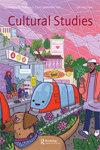‘It was a departure of sorts’: glocal homes in recent short fiction by Chimamanda Ngozi Adichie, Efemia Chela, Chibundu Onuzo and Lesley Nneka Arimah
IF 1.6
3区 社会学
Q1 ANTHROPOLOGY
引用次数: 0
Abstract
ABSTRACT This article takes off from two of the angles of contention found in critical responses to Paul Gilroy’s The Black Atlantic and subsequent Atlanticist studies: asymmetries and exclusions along gender lines, and insufficient attention to the dynamics of contemporary global capital. It examines what gets articulated when recent African short fiction is approached via a frame centered on the location of home, gendered labour, sexual and reproductive economies, and the interrelation of the domestic and capitalism. In particular, it is informed by Alexis Pauline Gumbs’s counter-heuristic to Gilroy, the Black Feminine Domestic. Gumbs’s attempt to make visible such a subject position and forms of labour prompts my focus on domestic workers and analogous figures, often migrant and low paid and sometimes found only at the edges of texts. I discuss Efemia Chela’s ‘Chicken’ (2014), Chibundu Onuzo’s ‘Sunita’ (2015), Lesley Nneka Arimah’s ‘Skinned’ (2019), and, from Chimamanda Ngozi Adichie’s collection The Thing Around Your Neck (2009), the stories ‘Imitation,’ ‘The Thing Around Your Neck’ and ‘On Monday of Last Week.’ Here the tropes of circulation and regimes of rationality identified by Gilroy find counterparts in the structuring of workforces, the reach of body and biopolitics, and discourses of national borders and migration. The lens of ‘women’s work’ permits an intersectional shift in and beyond Black Atlantic frames and the heteropatriarchal imagination, but the selected material and preoccupations here also seek to offer another opening on debates about, and genres of, ‘African’ writing.“这是某种意义上的背离”:Chimamanda Ngozi Adichie、Efemia Chela、Chibundu Onuzo和Lesley Nneka Arimah在最近的短篇小说中描述了当地的家庭
摘要本文从保罗·吉尔罗伊的《黑色大西洋》和随后的大西洋主义研究的批判性回应中发现的两个争论角度出发:性别的不对称和排斥,以及对当代全球资本动态的关注不足。它考察了最近的非洲短篇小说通过一个以家庭位置、性别劳动、性经济和生殖经济以及家庭和资本主义的相互关系为中心的框架来处理时所表达的内容。特别是,Alexis Pauline Gumbs对黑人女性家庭成员Gilroy的反启发式启发为其提供了信息。甘布斯试图让人们看到这样一个主题立场和劳动力形式,这促使我将注意力集中在家政工人和类似的人物身上,他们通常是移民和低收入的,有时只出现在文本的边缘。我讨论了Efemia Chela的《小鸡》(2014)、Chibundu Onuzo的《Sunita》(2015)、Lesley Nneka Arimah的《剥皮》(2019),以及Chimamanda Ngozi Adichie的合集《脖子上的东西》(2009)中的故事《模仿》、《脖子周围的东西》和《上周的星期一》在这里,吉尔罗伊所确定的流通和理性制度的比喻在劳动力结构、身体和生物政治的影响以及国家边界和移民的论述中找到了对应的东西。“女性作品”的视角允许在黑人大西洋框架和异父权想象中进行跨部门的转变,但这里选择的材料和关注点也试图为关于“非洲”写作的辩论和流派提供另一个机会。
本文章由计算机程序翻译,如有差异,请以英文原文为准。
求助全文
约1分钟内获得全文
求助全文
来源期刊

Cultural Studies
Multiple-
CiteScore
3.50
自引率
6.70%
发文量
0
期刊介绍:
Cultural Studies is an international journal which explores the relation between cultural practices, everyday life, material, economic, political, geographical and historical contexts. It fosters more open analytic, critical and political conversations by encouraging people to push the dialogue into fresh, uncharted territory. It also aims to intervene in the processes by which the existing techniques, institutions and structures of power are reproduced, resisted and transformed. Cultural Studies understands the term "culture" inclusively rather than exclusively, and publishes essays which encourage significant intellectual and political experimentation, intervention and dialogue.
 求助内容:
求助内容: 应助结果提醒方式:
应助结果提醒方式:


